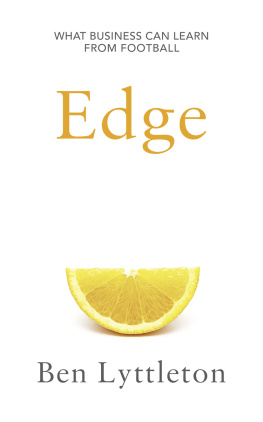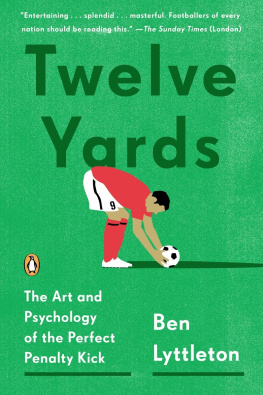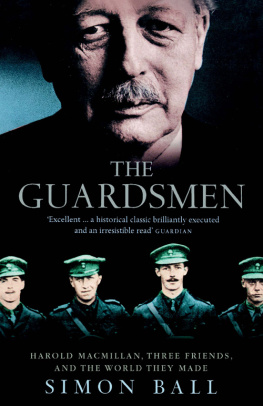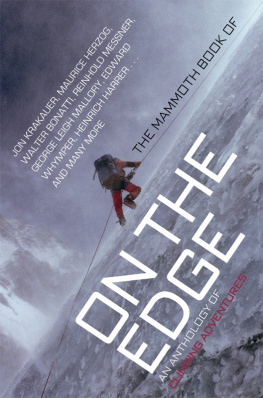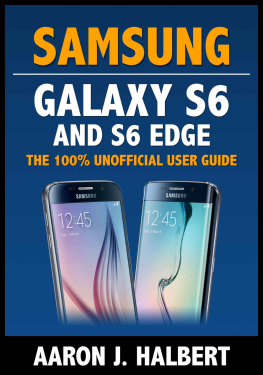Ben Lyttleton - Edge
Here you can read online Ben Lyttleton - Edge full text of the book (entire story) in english for free. Download pdf and epub, get meaning, cover and reviews about this ebook. publisher: HarperCollins Publishers, genre: Detective and thriller. Description of the work, (preface) as well as reviews are available. Best literature library LitArk.com created for fans of good reading and offers a wide selection of genres:
Romance novel
Science fiction
Adventure
Detective
Science
History
Home and family
Prose
Art
Politics
Computer
Non-fiction
Religion
Business
Children
Humor
Choose a favorite category and find really read worthwhile books. Enjoy immersion in the world of imagination, feel the emotions of the characters or learn something new for yourself, make an fascinating discovery.
- Book:Edge
- Author:
- Publisher:HarperCollins Publishers
- Genre:
- Rating:4 / 5
- Favourites:Add to favourites
- Your mark:
- 80
- 1
- 2
- 3
- 4
- 5
Edge: summary, description and annotation
We offer to read an annotation, description, summary or preface (depends on what the author of the book "Edge" wrote himself). If you haven't found the necessary information about the book — write in the comments, we will try to find it.
Edge — read online for free the complete book (whole text) full work
Below is the text of the book, divided by pages. System saving the place of the last page read, allows you to conveniently read the book "Edge" online for free, without having to search again every time where you left off. Put a bookmark, and you can go to the page where you finished reading at any time.
Font size:
Interval:
Bookmark:

HarperCollinsPublishers
1 London Bridge Street
London SE1 9GF
www.harpercollins.co.uk
First published by HarperCollinsPublishers 2017
FIRST EDITION
Ben Lyttleton 2017
Cover layout design by Steve Leard
Cover photograph Shutterstock
Athletic Club de Bilbao plaque poem Kirmen Uribe
Exploratory Behaviour Frequency charts G. Jordet, J. Bloomfield & J. Heijmerikx
A catalogue record of this book is available from the British Library
Ben Lyttleton asserts the moral right to be identified as the author of this work
All rights reserved under International and Pan-American Copyright Conventions. By payment of the required fees, you have been granted the nonexclusive, non-transferable right to access and read the text of this e-book on screen. No part of this text may be reproduced, transmitted, downloaded, decompiled, reverse engineered, or stored in or introduced into any information storage retrieval system, in any form or by any means, whether electronic or mechanical, now known or hereinafter invented, without the express written permission of HarperCollins e-books.
Find out about HarperCollins and the environment at
www.harpercollins.co.uk/green
Source ISBN: 9780008225872
Ebook Edition September 2017 ISBN: 9780008225889
Version: 2017-08-08
To ABC, with love
As soon as I took the call, I knew it was a great idea. It was summer 2014 and I had just spoken to Marcus Christenson, Football Editor at the Guardian newspaper. His plan was to tap into the football expertise of his global network and publish a piece called Next Generation. It would identify the top 60 players around the world aged 17 or below.
The feature would run every year, and readers would be able to track previously listed players and check on their progress. It was also quite brave, because if, in three years, say, 55 of the 60 players named had dropped out of football, no one would look too clever.
He asked me to come up with two players who were based in France. I have always been enchanted by French football and have written extensively about the game there. But I did not know all that much about the next generation, and when it came to that age group, it was more like the generation after next.
I called up some of my contacts in the French game and they helped me draw up a shortlist of five names. I had to narrow it down. I looked at video footage of the players but that didnt help; they all played in different positions anyway. So I went back to Marcus and asked what he wanted. Was it the most talented players? Or the ones most likely to make it? He wanted both: basically, a feature that would become an annual celebration of the Guardians football knowledge pool. We just want to get it right, he said.
This made me think. Would the most talented players be the ones most likely to make it? I asked a friend, a Premier League scout whose speciality was spotting youth-team players in northern France. Not at all, he replied. He was looking for players who influence games, whatever their position. This is not just a matter of technique or skill; its about working off the ball, and how they react to losing the ball.
So what is he looking for? Resilience, he said. Most scouts focus on the six seconds after a player loses the ball to check for reaction, but my friend keeps an eye on them for ten minutes. One youngster missed a chance to score and spent the rest of the half shaking his head and hitting his thigh in disgust with himself. He was crossed off the list. He was nervous when he next got the ball and he wont grow out of that.
He also talked about adaptability: how a player fits in socially with those around him, and extrapolated that to the potential new contexts that might await him. It was also important that he had a general respect for team-mates and the coach, and a simple enjoyment of the game. You can spot the ones who dont want to be there a mile off. There is a lot more to his job than interpreting body language and the odd behavioural trait. But he made it clear just how many aspects there are to assessing talent.
This was my chance to have a go at it. I had five players whose talent was not in question. Four had been capped by France at Under-17 level, and they were all playing in academies with a good record of bringing players through: Toulouse, Lens, Valenciennes, Rennes and Paris Saint-Germain. I had to narrow it down to two names.
I made more calls and this time was specific about my questions. Whats his attitude like? How does he react to difficult situations? How motivated is he? Does he get on well with people? Is he adaptable? There was a lot more fluctuation in the answers to these questions.
The difference in the talent that I could see between these five players was minimal. But there was a big gap in the talent I could not see. Some of it was talent you cannot even measure. How can you tell how motivated someone is, or what their decision-making is like under pressure? What about their adaptability to a new social group, or how they react, not just to defeat, but also to success? These elements all factored in attributes above the shoulder. They could be the difference between making it and not making it.
As I went through the questions about each player asking about attitude, teamwork, motivation, adaptability, resilience and creativity I realised these skills were not just relevant in the football world. They make the difference in any professional environment. Talent is the starting-point, but these are the elements that give you an edge. Thats what I was looking for. They all had talent. Which ones had the edge?
I was finally ready to send my names to Marcus. One was Jean-Kvin Augustin, a 17-year-old striker waiting for a first-team opportunity at Paris Saint-Germain. The other was also 17 and had not yet made a first-team appearance for his club. He was in the youth academy at Rennes. He was a winger. His name was Ousmane Dembl. I will come back to his story.
We can all agree that football and business are not the same. Your company will not release its results every three days. The local, national, and sometimes international, media wont pore over every decision you or your colleagues make. The weather is unlikely to affect your performance. The visual acuity of one man who could be 30 yards away wont become a defining moment in your life. Or at least, for your sake, I hope not.
In football, only one team can win the league. In football, managers spend a lot of time thinking and talking about the competition. They change strategies according to the opponent. Most businesses focus on the customer instead.
Then there is the performance itself. In what business do you spend only 5 per cent of your time performing, and the rest of the time developing your skills? If youre lucky, it might be the other way around. Most of us spend 99 per cent of our time on performance, and maybe 1 per cent on self-improvement.
To see how different business is from football you only need to look at the people who straddle both. The game is littered with highly successful businessmen who buy a football club and somehow take leave of their senses. They make crazy decisions. The heart takes over the head. Emotion trumps logic.
In my role working for Soccernomics, a consultancy named after the book of the same name, I have had conversations with the sporting side (coaches, scouts) and with the management side (chief executives, heads of finance) about players. Soccernomics works with club owners, helping them avoid expensive mistakes in the transfer market. I have listened to these people dissect running styles, crossing ability and ball control. Football has traditionally quantified talent through a rear-view mirror: looking at goals, tackles and passes. New data measures distance run, sprints made, speeds clocked, time on the ball, position on the pitch and even expected goals scored. In sports era of big data, they are just the tip of the iceberg.
Font size:
Interval:
Bookmark:
Similar books «Edge»
Look at similar books to Edge. We have selected literature similar in name and meaning in the hope of providing readers with more options to find new, interesting, not yet read works.
Discussion, reviews of the book Edge and just readers' own opinions. Leave your comments, write what you think about the work, its meaning or the main characters. Specify what exactly you liked and what you didn't like, and why you think so.

